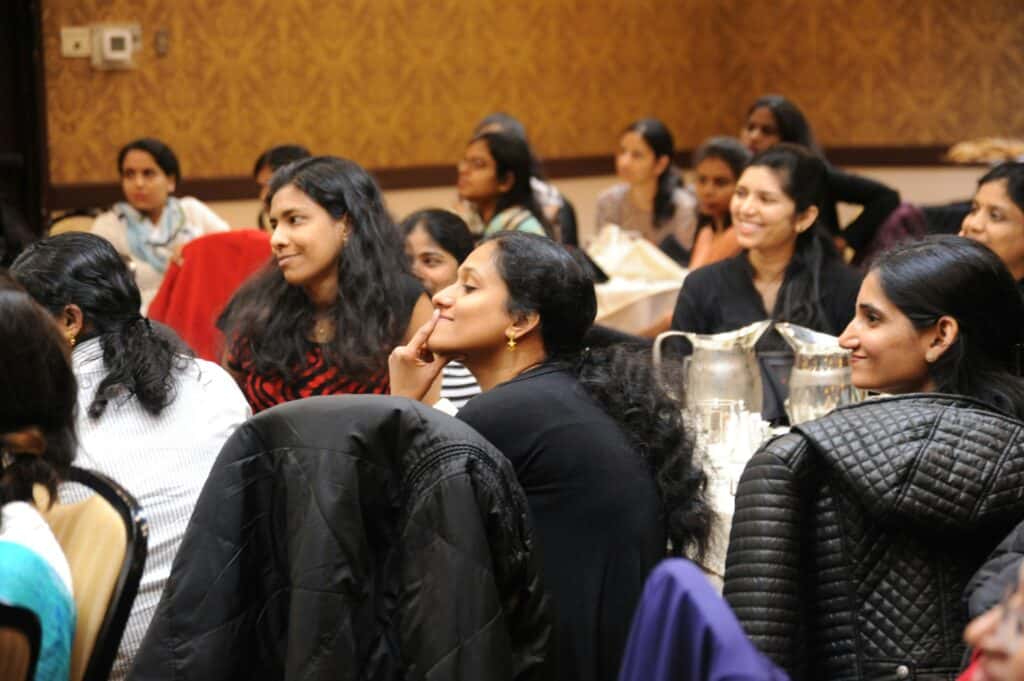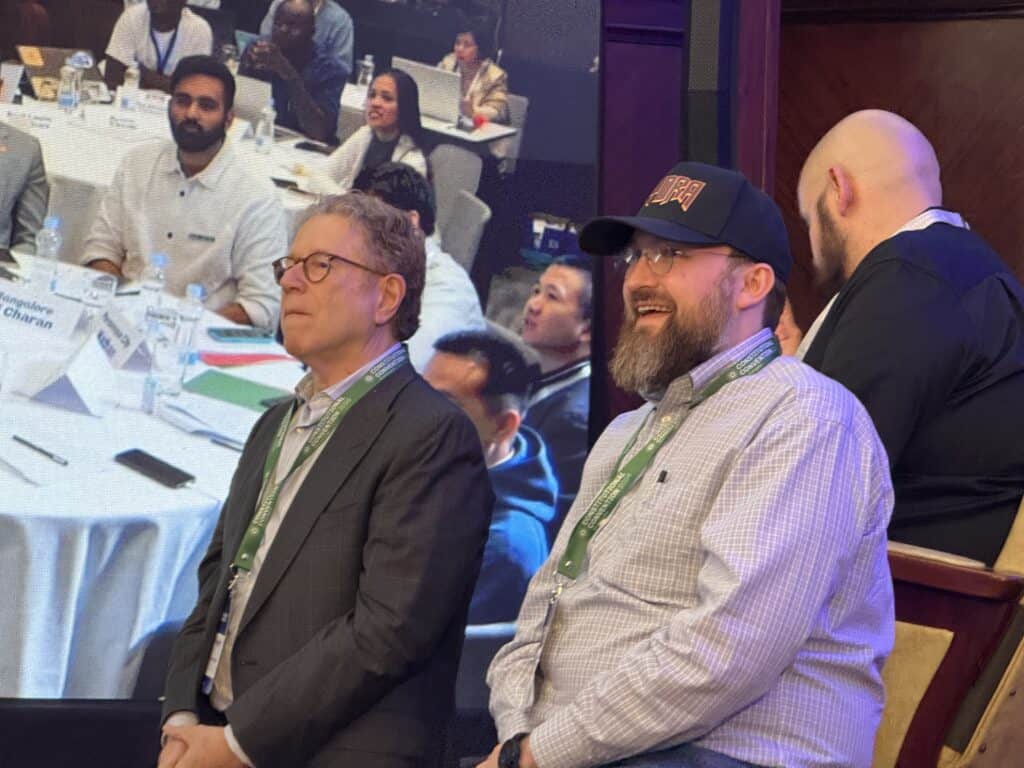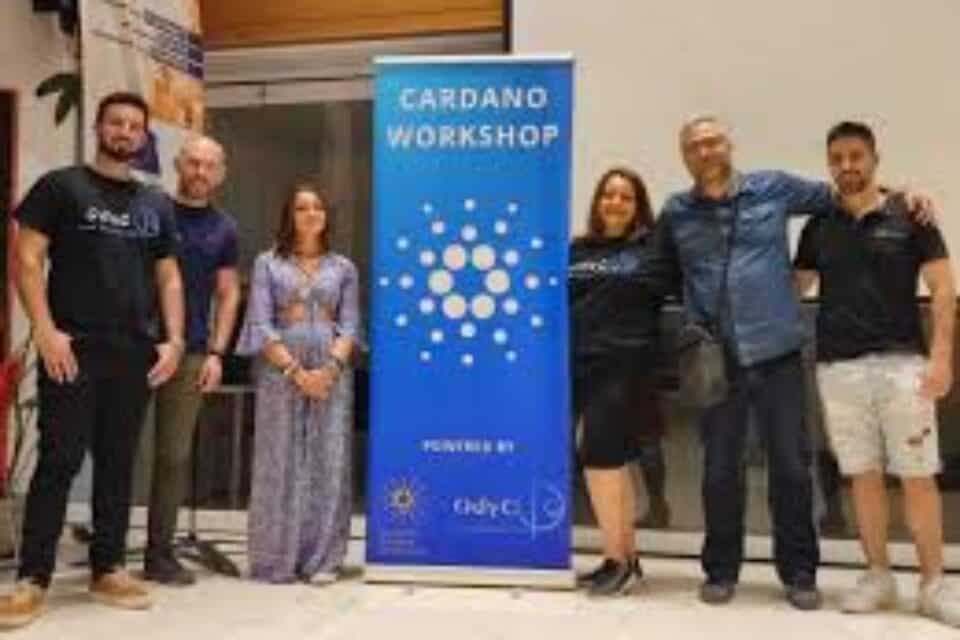Table of contents
Blockchain ecosystem Cardano recently made headlines when the network successfully completed a ground-breaking transition into a decentralized and distributed network governed by its community—and the facilitation team from Voltage Control was thrilled to be an essential part of this process.
Over the course of two years, concluded by five months of workshops leading to the Cardano Constitutional Convention, Voltage Control worked with the Cardano community to facilitate a collaborative approach to drafting, editing, and ratifying the Cardano Constitution. No other blockchain ecosystem or cryptocurrency provider has embraced decentralization this thoroughly and with such success.
By reviewing the process behind the Cardano Constitutional Convention, leaders in Web3 can learn how to successfully organize and facilitate a blockchain conference.
Inside the Cardano Constitutional Convention
By the end of the two year facilitation process, the community from Cardano had created a governance document that was ratified on-chain with 85% approval. Over 1,400 community members took part in 63 Community Workshops in 50 different countries leading up to the Constitutional Convention, with additional Delegate Synthesis Workshops facilitated simultaneously.
Finally, the Cardano Constitutional Convention took place from December 4 to December 6, 2024, in Nairobi, Kenya, and Buenos Aires, Argentina, with additional remote attendees from around the globe. Facilitators from Voltage Control were there every step of the way, from traveling to attend workshops around the world to designing the final summit, leveraging their facilitation skills in participatory decision-making to ensure a successful process.
Get exclusive insight into the Cardano Constitutional Convention and its supporting events by reading our case study, available here.
Going forward, international Web3 conferences and events will continue to grow in importance, serving as collaborative opportunities for advancing the industry while building in-person connections in the community. At the same time, blockchain networks will host meetings, workshops, and summits to make critical decisions and drive their communities forward.

As the facilitation team for this first-of-its-kind process, we saw the power of in-person events for Web3. In this article, we gathered our best insights and tips on how to facilitate a successful blockchain conference, workshop, or other event in 2025 and beyond.
Types of Cryptocurrency and Blockchain Events in 2025
Blockchain events can range in size from just a few participants to thousands of attendees, hosted online, in-person, or hybridly. These conferences and events may be internal and related to one blockchain ecosystem, like the Cardano Constitutional Convention, or open to the broader blockchain and cryptocurrency community, like Consensus 2025.
Events that are specific to one blockchain community can include:
- Ecosystem Development – Participants collaborate on key decision-making for topics like governance and planning.
- Community Workshops – Participants gather based on location, role, or interest to network, collaborate on a project, learn, or otherwise work together.
- Annual Meetings – The entire network is invited to build connections and catch up on the latest developments in the community.
Alternatively, events that apply to the blockchain and cryptocurrency industry more broadly can include:
- Large-Scale Conventions – Attendees travel from around the world for multi-day conventions.
- Interest Group Conferences – Web3 professionals gather based on a shared interest or unique background, such as the annual ETHWomen conference for women in blockchain.
- Industry-Specific Conferences – The central focus of these events is the intersection of blockchain and another specialized industry, such as cybersecurity or DeFi.
- Regional Events – The state of Web3 in a particular region, country, or continent is explored through a local convention, like at the Blockchain Africa Conference.
Facilitation goes hand-in-hand with event planning for these events, particularly when collaboration or decision-making is an element of the agenda.
How to Plan a Blockchain or Crypto Conference
In 2025, every blockchain event will have unique needs and obstacles when it comes to planning a successful event. Below we outline eight key tips to keep in mind when developing your event.
1. Build an exciting agenda.
The right agenda will have attendees buzzing well before the event kicks off. Before you finalize your agenda, identify your goals for the conference alongside the goals of those who will attend, taking time to ensure alignment. By getting into the headspace of the average conference passholder, you can adjust the blockchain conference design to ensure harmony, achieve goals, and drive up attendance to less popular sessions.
For larger events, consider the different session types to create a schedule that will excite your attendees. Blockchain conference session types can include:
- Panel discussions
- Lectures
- Networking opportunities
- Interactive workshops
- Expos
- Q&A sessions
- Hackathons
For smaller events, such as community workshops and member meetings, work with a facilitator to design an agenda that features the right pacing, breaks, and engagement.
2. Select the right facilitators.
As the Cardano community prepared to start the process of creating a governing document, they saw the task before them was monumental—and they knew they needed the support of an expert facilitation team. Cardano partnered with the team of Certified Facilitators from Voltage Control to design and facilitate the constitutional development process, working together to facilitate 63 community workshops in 50 countries as well as the Constitutional Convention that took place in December 2024.
At larger conferences, facilitators can appear at Q&A sessions, collaborative workshops, and panel discussions, and they can also provide behind-the-scenes support for the event hosts. Private summits and collaborative events, like the Cardano Constitutional Convention, also often need the support of professional facilitators to ensure smooth, successful decision-making processes.
Read more about how Voltage Control worked with Cardano to facilitate the development of the first community-run blockchain governance model in our comprehensive case study.

3. Develop networking opportunities.
At any Web3 conference, many attendees will eagerly network with one another, discussing the latest in the booming industry and building lasting connections with peers. To encourage these interactions, blockchain conferences can host dedicated networking events, with those sessions offering an area to mingle and meet, sometimes accompanied by a theme or refreshments.
The most common type of networking session is certainly the happy hour. However, hosts and facilitators can revamp the classic happy hour in favor of group activities, breakfast events, lunch and learn sessions, and more. A local facilitator can help plan an appropriate networking event based on the makeup of your attendees and local cultural expectations.
For smaller events, networking can still be facilitated through dedicated time for introductions and collaborative tasks. Participants can also network through shared downtime like a hosted lunch and a dedicated digital channel to connect before or after the event, such as a Slack channel.
4. Create a comfortable environment.
People of all backgrounds, hailing from all around the globe, take part in blockchain, cryptocurrency, and the broader Web3 industry. These diverse perspectives can be a powerful force for innovation—but this can also present a challenge for the hosts planning blockchain conferences.
Consider cultural differences as well as accessibility and translation needs. By planning ahead, you can develop an inclusive environment where all attendees feel welcome and safe, allowing them to fully focus on the topics at hand.
For hybrid and remote events, consider how to bridge the digital divide for virtual attendees, as they may feel less engaged when attending through a screen. To create multiple touch points, you can offer additional opportunities for facetime and leverage supporting software such as Slack and Mentimeter. Experienced facilitators can help attendees foster connections and build meaningful relationships in a comfortable, welcoming environment.
5. Identify the latest blockchain trends and topics.
No matter the focus of your event, your attendees will be tapped into the latest buzz from the ever-developing world of Web3, and, by adding these topics to your schedule, you can increase attendance and excitement for your event. Nimble hosts may add or adjust sessions as new topics crop up before the event.
Trending topics related to blockchain, cryptocurrency, and Web3 may include:
- Artificial intelligence (AI)
- Blockchain-enabled business models
- Sustainability
- Internet of Things (IoT) integration
Facilitators should make note of how any trending topics could affect the conversation, especially if facilitating any collaborative workshops or decision-making processes.
6. Invite the right people.
For closed events, like an annual summit for a specific blockchain’s members, plan ahead to get invitations out in a timely manner and follow up with regular reminders and drip campaigns to establish clear communication. Consider how hybrid and remote attendance options can integrate into in-person events to maximize the number of potential attendees.
For the Cardano Constitutional Convention, hosts prioritized having the in-person sessions for the event in Argentina and Kenya. These locations made the event more accessible to stakeholders in Africa and South America while also emphasizing the growing importance of those communities in the blockchain industry.
For large blockchain conferences and cryptocurrency conferences, hosts should create and implement an event marketing plan that identifies the ideal audience and outlines a plan to reach those potential attendees. Meet your audience where they are with targeted advertisements, email marketing, and supporting content that generates buzz for your event.
7. Test your technology.
Web3 leads the way when it comes to online innovation and smart software solutions, so it only makes sense for a blockchain conference or cryptocurrency conference to leverage technology effectively. For workshop sessions, work with your facilitators to select the right software and tools for accurate note-taking and collaboration.
If your event has remote attendees in addition to an in-person event, consider how you can make those virtual attendees feel fully engaged and appreciated. To accomplish this, your blockchain conference may offer virtual networking events, recordings, and interactive sessions like live Q&A panels.
8. Follow up with attendees.
Your last touchpoint should not be when your attendees walk out the door. The immersive digital world has set high expectations for consumers, with the onus on the provider to follow up with the individual. For blockchain conferences, this means that event hosts should develop a clear follow-up plan to continue to engage with attendees after the event.
This post-conference communication plan can feature:
- Recap emails
- Satisfaction surveys
- Event highlights shared on social media and blog posts
- Exclusive community channels
- Speaker information
- Videos and recordings
Event Facilitation for Blockchain and Crypto Conferences in 2025
The rapid ascension of Web3 has created an expanded community of developers, investors, professionals, and enthusiasts stationed around the world, many of whom will take part in Web3 events like blockchain conferences, cryptocurrency conferences, workshops, and summits. With the right facilitation and preparation, these events can serve as launching pads for continued growth and innovation.
The recent Cardano Constitutional Convention stands as a blueprint for a successful blockchain conference, demonstrating how global collaboration can work with thousands of participants coming together to define the future of Cardano governance. To get the full download on the event, including an exclusive look at the agenda, read the case study from Voltage Control.
Our facilitators from Voltage Control were alumni from our Facilitation Certification Program. They came equipped with the facilitation skills, techniques, and methodologies in order to help the Cardano community succeed. We’re experts in the unique needs of facilitation for blockchain conferences and events.
Are you planning a workshop, conference, or event for blockchain, cryptocurrency, or Web3? Contact Voltage Control to explore how our experienced facilitators can work with you to design a successful event.


